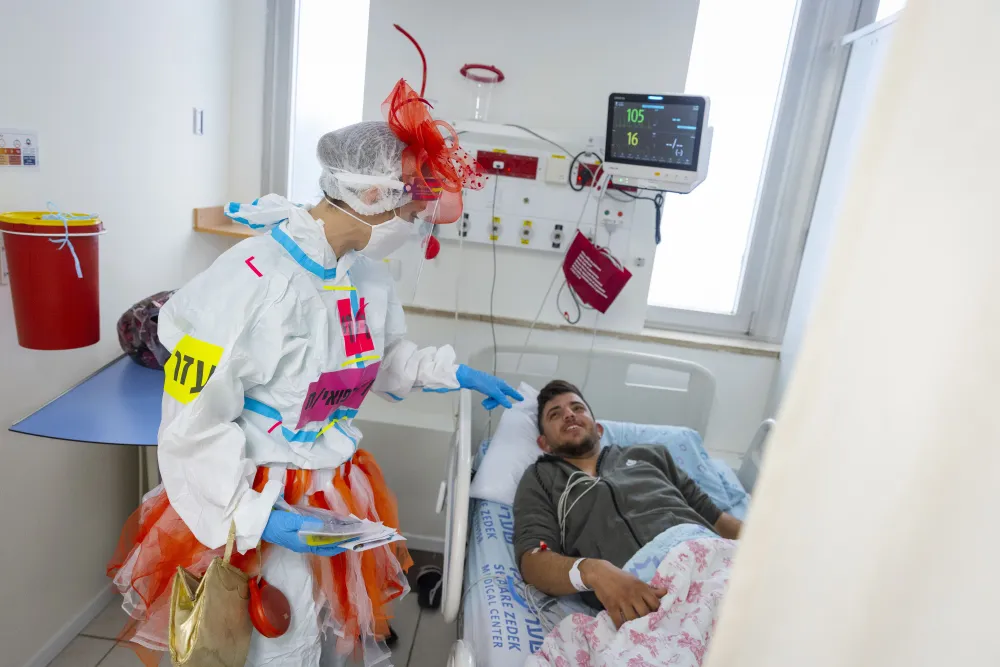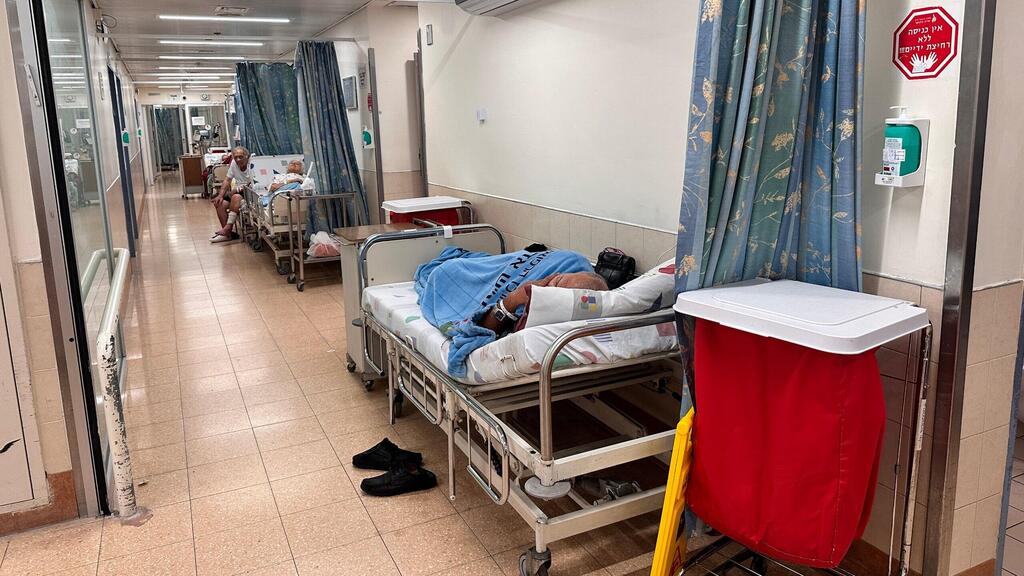The ongoing, deadly war we are embroiled in tends to overshadow the multitude of pressing issues faced by our health care system. Nevertheless, the challenges of health system overload, overcrowding and workforce constraints persist.
Read more:
During the initial months of this conflict, use of hospital in-patient departments was unusually low as people tried to avoid health care facilities as much as possible. However, since mid-January, we've seen the onset of winter-related illnesses, albeit with a delay compared to most years when significant morbidity typically begins in December. This delay likely resulted from people staying indoors and refraining from international travel during the early months of the conflict, factors that helped postpone the onset of winter illnesses.
However, confinement at home also had less favorable health outcomes. Among other things, it appears to have led to a decline in flu vaccination rates compared to previous years. Furthermore, the appeal for the elderly and those with suppressed immune systems to get out to receive an additional COVID-19 vaccine didn't resonate well, resulting in very few people getting vaccinated.
Now, our health care system must grapple with these realities. This year's viral winter morbidity,according to the Health Ministry's weekly report, is the highest we've seen at least since the 2019-2020 season, and one of the highest in recent decades. This intense burden is acutely felt in health fund clinics, triage rooms and in-patient departments, manifesting as extended waiting times for hospital beds or even for space in the hallways of in-patient departments. Intensive care units are overflowing with a large number of patients on ventilators. It remains uncertain if the rise in winter illness rates will also translate into increased mortality compared to previous years. We'll only know this at the end of the flu season.
Anti-vaccine campaign has been somewhat successful
Long-term data confirms that the flu vaccine reduces infection rates and also mitigates severe illness and mortality among those already infected, even in years when the vaccine coverage is partial. While the vaccine doesn't provide optimal or absolute protection against the disease, it does protect against the flu virus, though not against other viruses with very similar symptoms that are quite prevalent in the winter season but typically result in fewer complications and deaths. Diagnosing the exact virus causing the illness is impossible without diagnostic tests.
2 View gallery


Rosie a medical clown wearing safety gear visits patients in the coronavirus ward of Shaare Zedek hospital in Jerusalem
(Photo: Olivier Fitoussi/Flash90)
Additionally, there's a year-to-year variation in the composition of the proposed vaccine due to the ability of influenza strains to undergo genetic changes. This sometimes enables them to partially "escape" the vaccine. All of these factors contribute to the vaccine not always being optimal, and there are years when the vaccine components don't effectively target the main strain causing the illness, resulting in only a partial vaccine response.
The frequent genetic mutations of viruses necessitate our annual renewal of vaccinations to bolster immunity against evolving strains.
Other viruses co-circulate with the flu during the colder months. The present iteration of the coronavirus manifests with flu-like symptoms and has not shown the same level of danger as it did at the peak of the pandemic. Nonetheless, it remains a threat to the elderly and immunocompromised, who were advised to receive an extra vaccine dose at the onset of winter. Regrettably, very few people within these vulnerable groups got this extra vaccine dose.
RSV, a virus previously known to cause severe illness in young infants, is now acknowledged as a serious winter illness and has caused fatalities even among adults, particularly older adults. Advancements in medical research have led to a new vaccine against RSV, which has demonstrated efficacy in recent comprehensive studies, and is expected to be available in the near future.
It's disheartening to note that skepticism fueled by anti-vaccination rhetoric during the coronavirus era appears to have effectively discouraged widespread vaccination. Israel has observed a concerning dip in the adherence to established childhood vaccination schedules, a domain where it previously stood out. Consequently, diseases such as measles and mumps are resurfacing. A similar trend of waning vaccination engagement is observed among adults, with a notable impact on the management of winter illnesses.
 Dr. Eyal BrownPhoto: Rambam Health Care Campus
Dr. Eyal BrownPhoto: Rambam Health Care CampusAmid the zenith of winter sickness season, and with virus activity particularly from the flu hitting a peak, vaccination remains strongly advised. Despite the vaccine's limitations in covering all viruses, it's particularly crucial for the elderly and chronically ill (truly, for everyone) to seek flu vaccination before winter sets in. It is my hope that we'll see an upturn in vaccination rates in the coming year.
- Eyal Brown is the director of the internal medicine department and chairman of Rambam Medical College for Human Health


